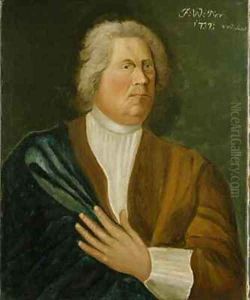William I of Prussia Frederick Paintings
William I of Prussia, also known as William I, German Emperor, was not an artist but a significant historical figure in European history. He was born on March 22, 1797, in Berlin, to King Frederick William III of Prussia and Queen Louise. His full name was William Frederick Louis of Prussia (Wilhelm Friedrich Ludwig von Preußen). His upbringing was marked by the Napoleonic Wars and the reform era of Prussia, which deeply influenced his later political life.
William served in the Prussian army and was known for his conservative military and political views. He became King of Prussia in 1861 after the death of his brother, King Frederick William IV, who had been incapacitated by a stroke and for whom William had served as regent since 1858. As king, William appointed Otto von Bismarck as the Prime Minister of Prussia in 1862, and together they orchestrated the unification of the German states through a series of wars and political maneuvering.
The successful unification process culminated in the proclamation of the German Empire in 1871, with William being crowned as the first German Emperor (Kaiser). This marked a significant shift in European power dynamics and laid the foundation for Germany's rise as a major continental power. William's reign saw the modernization of the German army, the fostering of a strong economy, and the promotion of a unified German identity. Despite his conservative tendencies, his era also saw the implementation of social reforms such as the establishment of a welfare state.
William I died on March 9, 1888, after a reign that helped shape the future of Germany and Europe. His death marked the beginning of the Year of the Three Emperors in Germany, as his son Frederick III and later his grandson William II succeeded him in the same year. William I's legacy is complex, as he is both celebrated for his role in the unification of Germany and criticized for his authoritarian style of governance.
